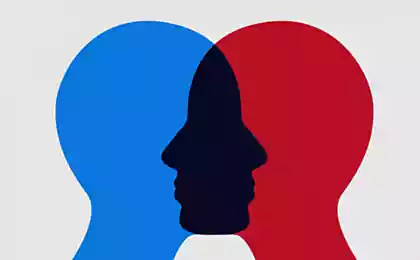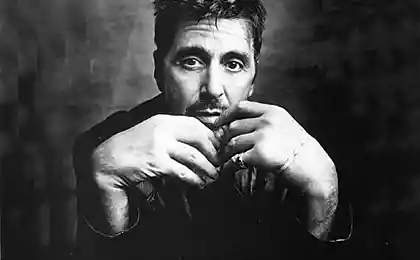187
Right and Wrong Feelings

In one magazine conducted a survey of famous humorists. They were asked to talk about the situations they would like to return to and change the course of events. Four people responded. One is sincere, one is incomprehensible, and two... Two answered "right."
I think I’m going to be one of the opponents of changing these situations. Life should not be seen as an opportunity, a point to return to and change. Everything that happens to us in life (including mistakes!) is given to us for a purpose. It is not necessary to change or return to the past. Maybe something wrong in the past led to a series of good things. And I find mistakes useful. Let everything be as it happens, it is better not to influence the course of time!
That's not the answer. I agree with the psychologist who commented on these words that we have a speculative construct that lives in the head, but not in the heart. The question “what do you regret in the past” is followed by an abstract discussion of why you shouldn’t regret it.
What happened in the past has already happened and cannot be changed. Thinking about her is pointless, especially thinking that you could influence her. In this regard, I want to recall a favorite anecdote of one of my good friends: “Women, you should not chase a man’s tram, like a departing tram, remember that the next one comes after him.”
Honestly, not funny or sincere. Another “correct answer,” deeply formal and essentially unanswerable.
I don't believe the answers, the intellectual constructs that are read somewhere in textbooks. Recently, I have met quite a few people who can be conditionally classified into two groups:
(a) “Senseful” – they try to frame their feelings according to certain patterns that prescribe some emotions and “cancel” others.
(b) “Not feeling at all”. Unlike the former, they do not mask their emotions - they are not aware of them. They are called alexithymic, but I will write about them in a separate post.
So, "feeling right." They often like theories that tell you which emotions are “right” and which ones to avoid. They are not only lovers of popular psychology, but, even more so, lovers of esotericism and “spiritual practices,” as well as religious people. For example, in Christianity there are clearly expressed “bad” emotions and states – anger, envy, sexual attraction to officially unapproved men / women, etc. There are many popular and not so popular typologies in which different types of people are prescribed different feelings or a tendency to experience certain feelings.
There. All people experience the same emotions. Emotions have a biological basis, performing evaluation and motivational functions (motivation to activity). In Soviet-Russian psychology, it is customary to separate emotions and feelings, explaining the latter as socially conditioned and pronounced individualized emotional processes, but the real boundary between them is very blurred. Emotions and feelings are not “right” or “wrong.” They reflect our psyche’s assessment of how things are going and encourage us to do something, including thinking. Envy, anger, fear, shame, guilt all act as regulators of our lives, and are constructive rather than destructive. But the thesis “every situation in life is an adequate emotion” is replaced by “there are emotions that are generally inadequate.” And then it begins...
I find it hard to believe people who:
(a) They say they have “no regrets in their lives.” This means that they never made any serious mistakes. I doubt it. Another thing is that you can devalue what happened.
(b) They claim to love all people (children, animals, etc.) – even those who have just been seen for the first time in their lives. Such “love” is very characteristic of the “spiritually advanced”, but for some reason other people, not very “spiritual”, are often perceived as detachment and insensitivity. You can hide behind “love for everyone” very well – from the possible aggression of other people (I love you!), or from real contact with your own feelings, including “wrong ones”.
c) They say they don’t envy anyone. Then they are either narcissists (which is likely) or people who have absolutely everything they want (which is unlikely unless it is in a Tibetan or other monastery).
d) They say it's stupid to be angry. Anger is not an intellectual feeling at all, and “smartness” does not obey in any way.
e) They say they can easily forgive everyone and everything. Often, however, they remember well who and what they forgave.
There are still people who are never jealous, do not lose heart, do not fear, are always responsible and conscious (the list can be continued indefinitely).
There is a great temptation to find a beautiful theory and try to subdue your emotions. “Emotions must be controlled by the mind” is an outdated slogan. Emotions and mind are not two separate categories, they are ONE category. People with “disconnected” emotions can think rationally as much as they like, but they will not be able to perform two operations: start thinking for themselves (because there is no internal stimulus) and make a decision (the emotional brain, the limbic system, is responsible for making decisions). What will happen if you turn off the mind is also quite clear.
“To feel right” means to ignore the emergence of some emotions, suppress them, avoid them at all costs. But you cannot suppress “bad emotions” without suppressing “good ones.” Getting rid of intense grief or fear, we simultaneously lose the opportunity to experience intense joy or inspiration. Either we have access to the full range of emotional experiences, or — no. People who take antidepressants often complain that the world has become “grey” and they themselves live in a fog (this does not mean that antidepressants are evil!).
Another aspect of ignoring emotions is the inclusion of projections. That is, repressed emotions begin to be attributed to other people, not to themselves. And then there are only “slanderers and envious”, “losers”, “aggressors”, “lustful rapists” and so on. The greatest success is in ousting fanatics, no matter which ones are religious, atheistic, political, etc. They simply liken the “evil” with which they fight fanatically, ousting from their consciousness everything that so strongly relates them to the “enemy”. After all, these are wrong feelings, thoughts and experiences... Repressed anger can masquerade as suffocating love when we are “benefited” or “good done.”
In general, living people experience the full range of emotions inherent in a person. Clever talk about experiencing something “stupid” or “irrational” remains smart talk, and emotions continue to flow from all the gaps in the supposedly impenetrable fence of rationality. It is foolish not to be angry, jealous, angry, greedy and so on. It would be foolish not to recognize oneself as a human being and therefore to experience these emotions. Yes, we cannot prevent the emergence of certain emotional states. But if we are aware of them, we can influence their manifestations. Express, translate into action, find out the causes of occurrence, satisfy needs. But only if we recognize their existence. published
Author: Ilya Latypov
P.S. And remember, just by changing your consciousness – together we change the world!
Source: /users/1077























